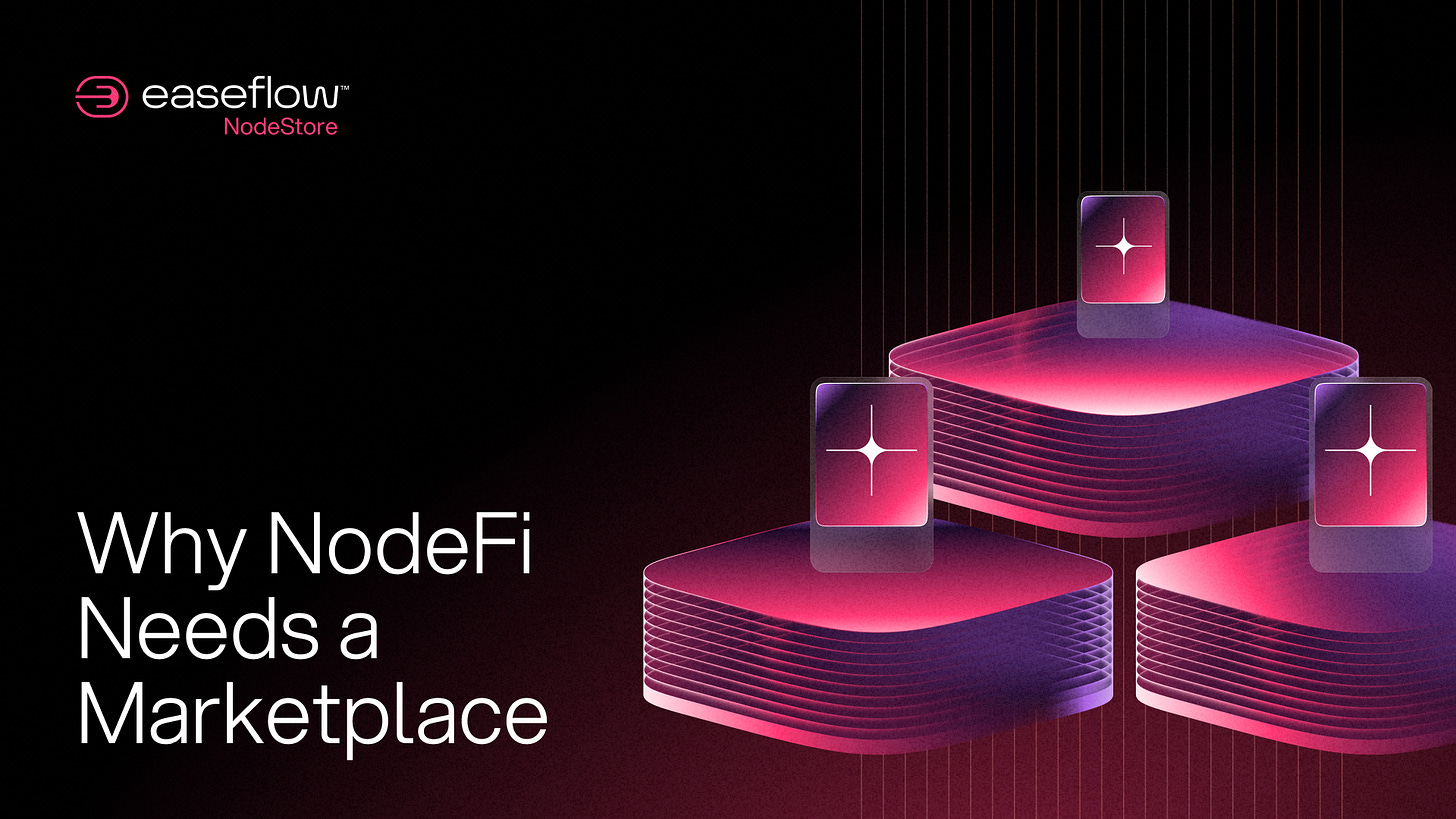Why NodeFi Needs a Marketplace
The Next Frontier of Infrastructure Investing
TL;DR:
NodeFi transforms decentralized infrastructure into an investable asset class, where contributors earn, govern, and speculate through ownership of node licenses, compute access, bandwidth entitlements, and other infrastructure-bound roles. But today, there’s no unified market to unlock or trade these rights. That’s where NodeStore comes in: a permissionless, programmable marketplace that brings liquidity and composability to the infrastructure economy.
Infrastructure Is Becoming Capital
NodeFi sits at the intersection of infrastructure and finance. It’s where contributors don’t just support decentralized networks. They own the rights to run, delegate, or monetize them. These rights take many forms: validator slots, zkProver keys, GPU or storage entitlements, sequencer licenses, even future token claims. Held by operators, investors, and early contributors, these positions represent earning power: income streams, governance weight, and exposure to upside across a wide array of decentralized systems.
But despite their growing economic value, these assets remain mostly illiquid. Participation is often gated, resale is limited or non-existent, and contributors face lock-in with little recourse to hedge, exit, or reinvest. The very roles that power Web3 are stuck: static, siloed, and underutilized.
The Fragmentation Behind the Boom
NodeFi has grown quickly, but in silos. Infrastructure rights are issued within dozens of protocols and modular stacks, from zero-knowledge networks and decentralized AI grids to data relays, edge networks, and storage layers. Yet each of these ecosystems relies on bespoke tools, closed communities, or fragmented Discord channels to manage asset flow. There’s no shared liquidity layer, no unified interface, and no visibility into pricing or demand. Node assets are traded OTC, exposure is hard to evaluate, and participation often requires high technical lift. The result is inefficient capital, poor transparency, and barriers to scale.
NodeStore Unlocks Contributor Liquidity
NodeStore introduces a marketplace purpose-built for this new class of infrastructure-native assets. It’s not just about listing NFTs, it’s about transforming contributor rights into fluid, programmable capital. With NodeStore, contributors can buy, sell, and exchange node licenses in a modular environment that supports everything from time-locked staking NFTs to revenue-generating access keys. Even before nodes are active or tokens are live, holders can access liquidity by trading claim rights, packaging future yields, or rotating between operating and delegating roles.
By standardizing metadata like emissions schedules, uptime requirements, and governance rights, NodeStore makes these assets transparent and legible. As it’s built for composability, contributors can integrate infrastructure exposure directly into DeFi strategies - bundling rights into portfolios, collateralizing positions for loans, or participating in revenue splits. What used to be static licenses become dynamic instruments.
A Marketplace for the Modular Age
Instead of siloed tools for each network, NodeStore creates a unified experience across the decentralized infrastructure stack. Whether contributors are participating in a rollup ecosystem, a zero-knowledge prover network, or a decentralized compute grid, NodeStore aggregates these assets into a single, interoperable interface. Through its integration with orchestration and node-as-a-service tooling from easeflow, contributors can not only trade roles, they can seamlessly operate, manage, and monitor them as well. This integration bridges provisioning and liquidity in one coordinated flow.
The implications go beyond resale. Protocols gain deeper insight into demand for roles. Investors gain early access to pre-liquid assets. Contributors regain optionality: the ability to join, commit, or exit without friction.
Infrastructure Should Flow
As crypto moves from speculative finance to real-world coordination, infrastructure becomes the substrate. But ownership without flexibility limits growth. That’s why NodeFi needs a marketplace: to turn work into capital, roles into rights, and static participation into dynamic opportunity.
NodeStore isn’t just a trading venue. It’s the liquidity layer for infrastructure itself: unlocking a new era where contributors don’t just build networks, they shape, earn, and move through them.


